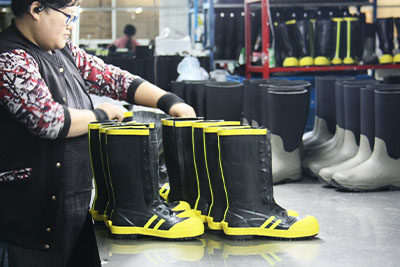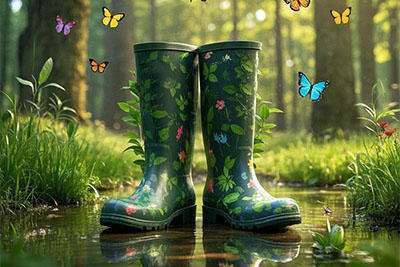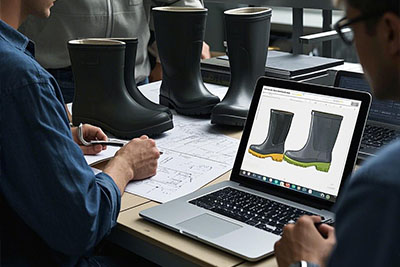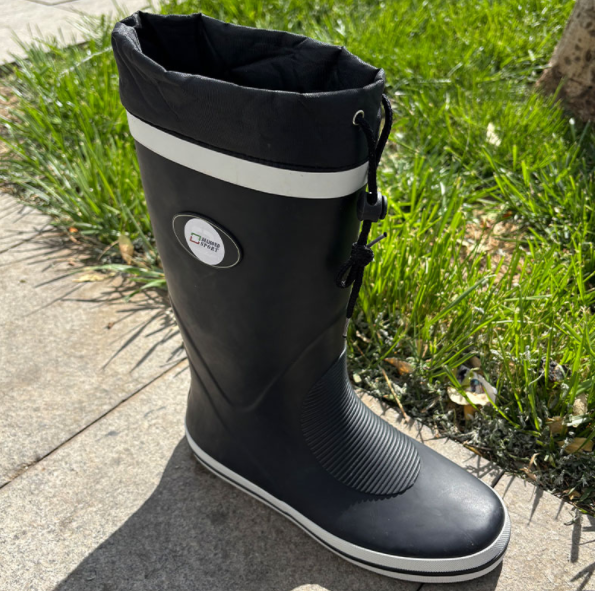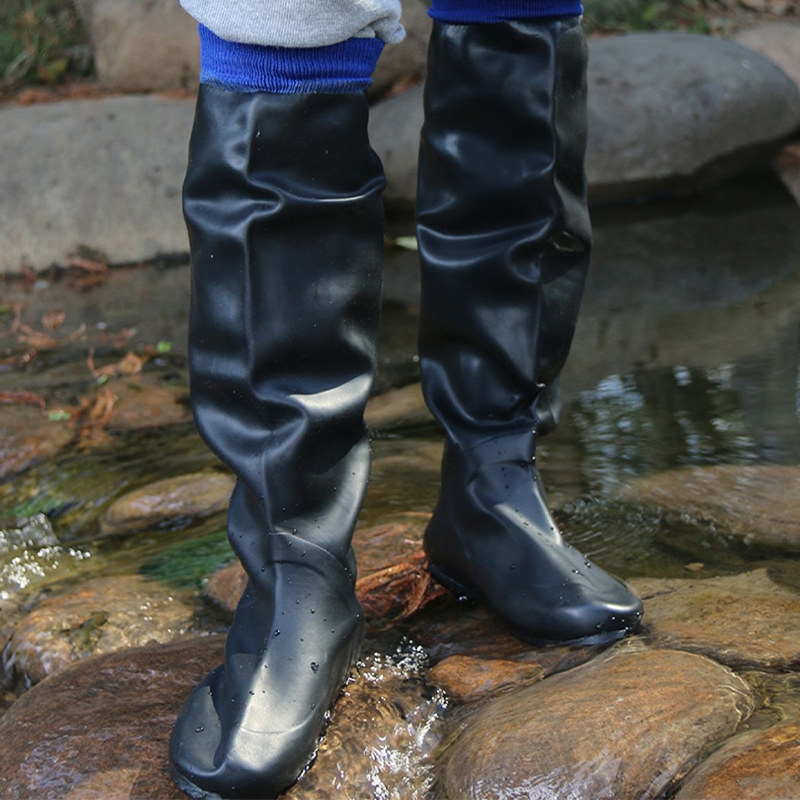Do You Need Professional Gardening Boots for Landscaping Tasks?
The Importance of Proper Footwear in Landscaping
Why Footwear Matters for Gardening and Landscaping
Landscaping includes tough tasks. These tasks often need many hours outside in different weather. Whether someone is a skilled landscaper or a weekend hobbyist, the choice of shoes is vital. It ensures comfort, safety, and good work. A fine pair of gardening boots is key outdoor gear. They keep feet dry and cozy while working in soil. Sneakers or regular shoes may work for light gardening. But they fail in muddy areas, with sharp tools, or on rough ground.
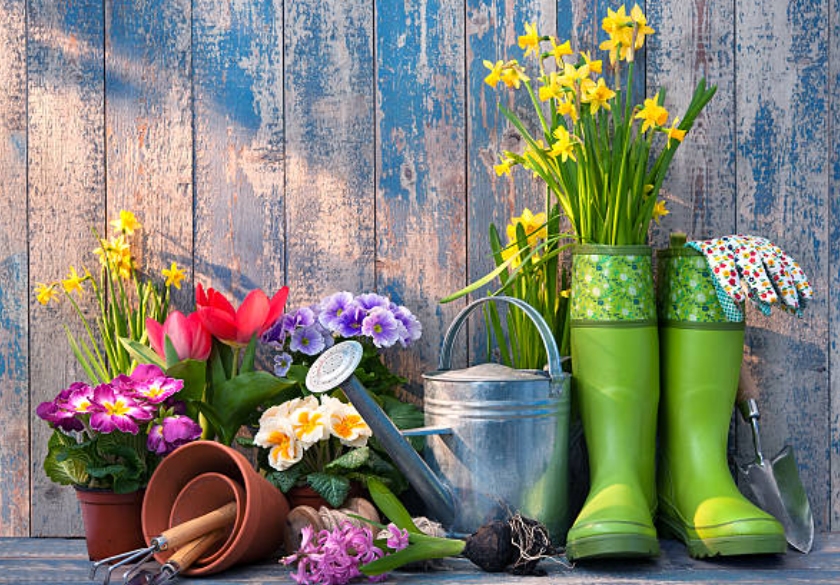
Good shoes give needed support for long tasks. They also guard against dangers like sharp items, slippery surfaces, and water or chemicals. Wearing the right shoes can stop injuries. It also boosts work speed during landscaping tasks.
Common Risks of Poor Footwear During Landscaping Tasks
Bad shoes raise the chance of accidents and unease. Without good grip, people may slip on wet or uneven ground. Also, shoes without waterproofing can cause wet feet. This may lead to blisters or fungal problems over time. Thin soles do not protect against sharp things like nails or thorns in the soil. Plus, poor arch support can cause foot tiredness. It may also lead to long-term issues like plantar fasciitis.
Lack of protective parts, like strong toes, leaves feet open to heavy falling items like stones or tools. So, buying professional gardening boots is not just about ease. It is a must for safety and health.
Features to Look for in Professional Gardening Boots
Comfort and Support for Long Hours
Comfort is crucial when picking the best gardening boots. Long hours of bending, kneeling, or standing need shoes that cushion feet well. They must also give good arch support. Soft linings like neoprene are great. They offer cushioning and warmth. Adjustable inner soles let people set their comfort level based on needs.
Durability and Material Quality
Sturdy boots last through tough conditions without wearing out fast. Materials like strong rubber are best. They resist scratches and punctures. Boots made with fine materials last longer. They also shield feet from bugs and other garden pests. Choosing sturdy boots cuts the need for frequent replacements. This saves money over time.
Waterproofing and Weather Resistance
Waterproof boots are vital for tasks in wet places. Gardening boots keep feet dry in any weather. The waterproof feature prevents water infiltration. It also keeps feet warm in cold months. High-quality waterproof materials prevent material aging and mold growth from constant moisture.
Slip Resistance and Traction
Gardening often involves slippery surfaces like wet grass or muddy paths. Anti-slip soles with deep treads give steady traction. This lowers the chance of falls. Good grip is key when moving over rocky or wet areas. This feature is vital for staying stable during hard tasks.
Protection Against Hazards
Steel Toe or Reinforced Toe Options
Heavy tools or falling debris are big risks in landscaping. Boots with steel toes or strong caps protect toes from injury due to impact or pressure.
Puncture-Resistant Soles
Sharp items like thorns, nails, or shards in soil can pierce regular shoe soles. Puncture-resistant soles act as a shield against these dangers. They ensure safety without losing flexibility.
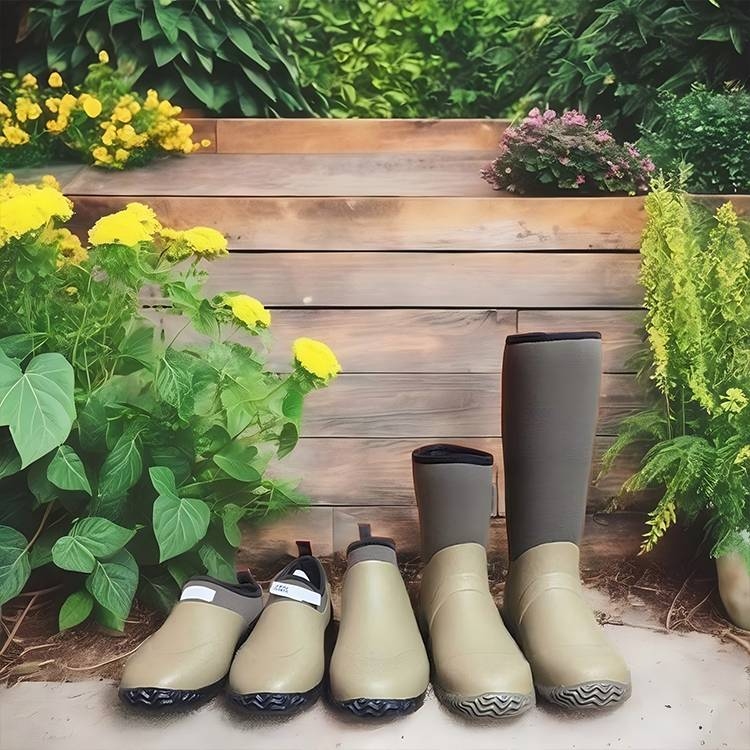
Types of Gardening Boots Suitable for Landscaping
Ankle-Length Gardening Boots
Ankle-length boots offer ease of movement. They are great for lighter gardening tasks where mobility is needed. These boots are simple to put on and take off. They also provide enough protection around the foot’s base.
Mid-Calf and Knee-High Boots
Mid-calf and knee-high boots give extra coverage against mud, water, and debris. These styles ensure full waterproofing from sole to top. They are ideal for heavy landscaping projects. These projects may involve deeper work in soil or water.
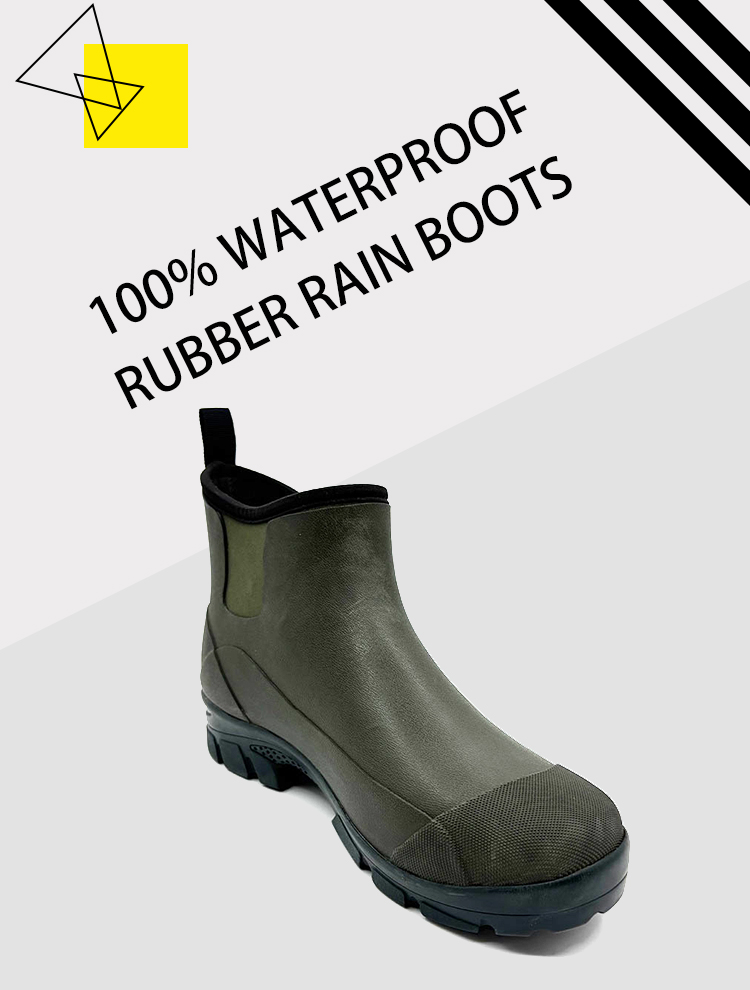
Lace-Up vs. Slip-On Styles
Lace-up boots let people adjust the fit as they like. They also offer better ankle support during tough tasks. Meanwhile, slip-on styles focus on ease. They still keep key protective features like waterproofing or sturdiness.
By carefully thinking about these factors when choosing gardening boots, people can greatly improve their landscaping work. They can also prioritize safety and comfort at every step.
Benefits of Investing in High-Quality Gardening Boots
Enhanced Safety and Injury Prevention
Buying professional gardening boots greatly cuts risks in landscaping tasks. Good shoes give needed support for long tasks. They also protect against dangers like sharp items, slippery surfaces, and water or chemicals. Features like steel or strong toes shield feet from heavy falling items like stones or tools. Plus, puncture-resistant soles act as a barrier against sharp things like nails, thorns, or shards in the soil. These protective features let people work with confidence. They do not risk their safety.
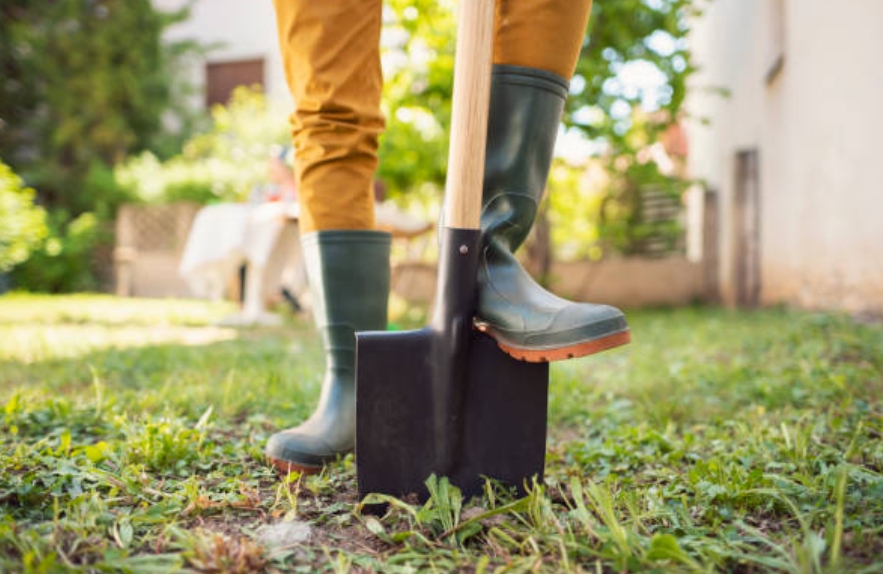
Improved Productivity and Efficiency
Comfy and supportive gardening boots boost work speed. They reduce foot tiredness and unease during long hours. Soft linings like neoprene are great. They offer cushioning and warmth. Adjustable inner soles let people set their comfort level based on needs. With features like anti-slip soles giving steady traction on wet or uneven surfaces, people can move through tough areas well. This cuts downtime from slips or injuries. As a result, overall work speed improves.
Longevity and Cost-Effectiveness Over Time
High-quality gardening boots are made from sturdy materials. These materials last through tough conditions without wearing out fast. Boots made with fine materials last longer. They also shield feet from bugs and other garden pests. Waterproof options prevent damage from constant moisture. This ensures boots stay functional over time. Though the initial cost may be higher, fewer replacements make them cost-effective in the long run.
Tips for Choosing the Right Gardening Boots for Your Needs
Understanding Your Specific Landscaping Requirements
The choice of gardening boots should match the tasks one plans to do. For light gardening, ankle-length boots offer ease and movement. However, for heavy tasks involving deep soil or water, mid-calf or knee-high boots give better coverage and protection. These styles ensure full waterproofing from sole to top. Knowing one’s needs helps pick boots that perform best.
Evaluating Fit and Sizing Considerations
A good fit is key to ensure comfort and avoid issues like blisters or foot tiredness. Boots should not be too tight or too loose. They should allow room for movement while holding the foot securely. Lace-up styles let people adjust the fit as they prefer. They also offer better ankle support during tough tasks. Meanwhile, slip-on styles focus on ease. They still keep key protective features like waterproofing or sturdiness.
Maintenance Tips to Prolong Boot Lifespan
Regular care is vital to make gardening boots last longer. Cleaning them after each use stops dirt buildup that could harm materials over time. Storing them in a cool, dry place keeps their structure strong. It also prevents mold growth. Applying waterproof sprays from time to time ensures they stay resistant to water even after long use.
Overview of Handan Trendy Boot and Textile Co., Ltd
Handan Trendy Boot and Textile Co., Ltd., located in Hebei Province, North China, focuses on making high-quality outdoor gardening boots for men, women, and children.
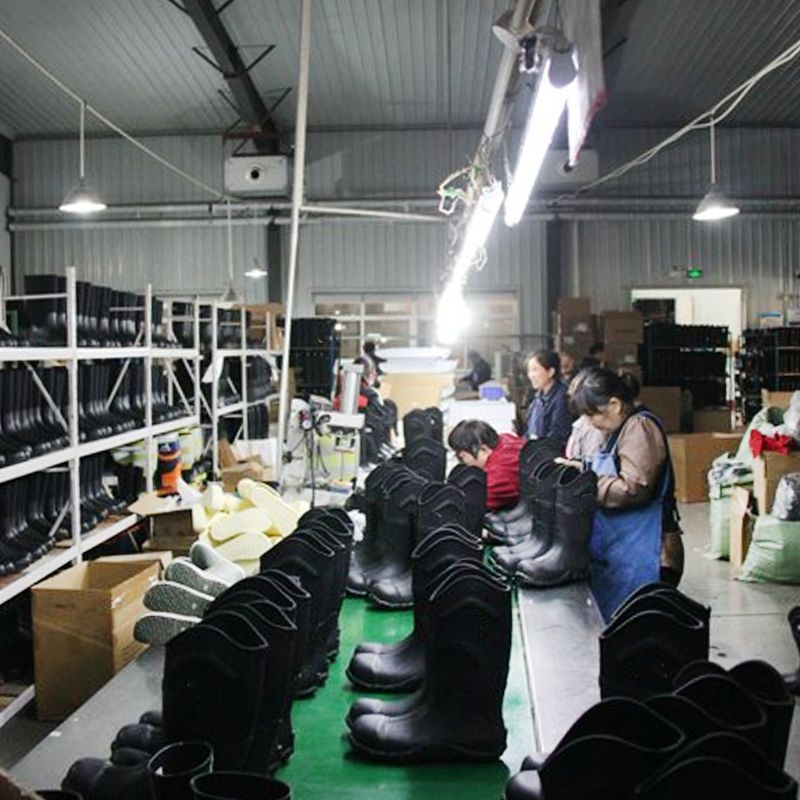
The facility has modern tools with 15 rubber mixers, 6 production lines, 4 vulcanizers, and advanced testing gear like vulcanization rheometers and tensile testers. The company now runs 6 welly boot production lines. It can make 5,000 pairs daily.
Handan Trendy Boot values new ideas. It blends elements from sports shoes and leather footwear into rubber boot designs. Their commitment goes beyond making boots. They offer custom solutions through ODM/OEM services. Clients can choose every detail of their product, from materials to logo placement. contact yori@wellies.cn or WhatsApp +86-18633619747 today!

